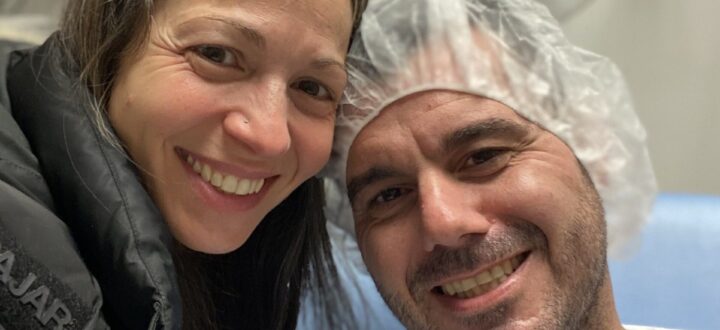Humber River Hospital offers new SKiP Same Day Knee Replacement Program
In the wake of COVID-19, surgical procedures that decrease patient length of stay and minimize the use of post-operative pain medication are playing a vital role in Humber River Hospital’s ability to ramp up surgical services again.
This summer, Humber River Hospital started offering SKiP, a same day knee replacement program that uses a safe and highly effective nerve-block system to block pain sensation. Patients can usually return home the same day as their operation, and pain at the surgical site is blocked for 3 days using a continuous drip that runs from a bottle attached to a catheter in the patient’s thigh.
Patients don’t have to worry about pressing buttons or changing the bottle. They simply leave it alone while they heal from surgery. Humber River Hospital provides a similar service – called COIN – to shoulder replacement patients.
“We learned a lot from COIN,” says Stephanie Lourenco who was involved with COIN as a Clinical Practice Lead and who currently manages the Post Anaesthesia Care Unit (PACU) at Humber. “Many patients have fears around opioids and are wary of taking narcotics for pain relief. COIN and SKiP allow them to go home sooner, be more comfortable, and recover in their own space.”
The benefits of SKiP include:
Less time in hospital: In this pre-vaccine COVID-19 period, reducing length of stay helps keep surgical patients safe by reducing potential exposure.
Less medication post-surgery: The availability of pain medication is one of the key factors in Humber’s clinical ramp-up plan following the first wave of COVID-19. SKiP greatly reduces the need for opioids post-operation, which is helpful as surgical programs across Ontario continue to face challenges with the medication supply chain during the pandemic. It also reduces the risk of negative side effects associated with opioid therapy.
Once the SKiP patient is back at home, an anaesthesiologist will call them every day to make sure the bottle is working properly and that they are comfortable. On day 3, the anaesthesiologist will call with instructions on how the patient can safely remove the catheter themselves – no follow up appointment required.
“We provide thorough support, communication, and education before and after surgery,” says Stephanie. “SKiP allows for patient empowerment in taking accountability for their own care and managing their pain with little need for opioid use.”






